Are you curious about the calorie content and nutrition facts of mini avocados? Let’s delve into the details!
Avocado is considered a superfood and is known for its health benefits, including managing cholesterol and blood sugar levels. However, it is important to note that avocados are high in calories, with most of the calories coming from fat.
- One-half of an avocado (100g) contains approximately 160 calories.
- Avocados are a good source of magnesium, potassium, vitamin C, vitamin E, and vitamin K.
- They are low in sugar and have a low glycemic index.
- The fats found in avocados are primarily monounsaturated fats, which are healthier than saturated fats.
- Avocados provide various vitamins and minerals, including folate, riboflavin, niacin, and pantothenic acid.
The calorie content of an avocado can differ based on its size, with an average avocado ranging from 200 to 300 calories.
Key Takeaways:
- Mini avocados contain 117 calories, 10g of fat, 6g of carbohydrates, and 1g of protein.
- They are a good source of potassium, vitamin C, and vitamin K.
- Including avocados in your diet may have potential benefits for diabetes management, cholesterol levels, and weight loss.
- Avocado allergies are rare but can occur in some individuals.
- When selecting an avocado, choose one that is dark in color and slightly yields when gently squeezed.
Mini Avocado Calories and Nutritional Value
Mini avocados may be small in size, but they pack a nutritional punch. Let’s uncover their calorie content and nutritional value.
One mini avocado, weighing approximately 100g, contains an average of 117 calories. In terms of macronutrients, mini avocados contain 10g of fat, 6g of carbohydrates, and 1g of protein. While they may have slightly fewer calories than regular-sized avocados, mini avocados still provide essential nutrients and health benefits.
Mini avocados are a good source of vitamins and minerals. They are rich in potassium, which is important for maintaining proper heart and muscle function. Additionally, mini avocados are packed with vitamin C, an antioxidant that supports immune health. They also contain vitamin K, which plays a key role in blood clotting and bone health.
When it comes to dietary fat, mini avocados offer approximately 10g per serving. The fats found in avocados are primarily monounsaturated fats, which are known to be heart-healthy and may help lower bad cholesterol levels.
| Nutrient | Amount per 100g |
|---|---|
| Calories | 117 |
| Fat | 10g |
| Carbohydrates | 6g |
| Protein | 1g |
Mini avocados can be a versatile and nutritious addition to your diet. You can enjoy them sliced on top of salads, mashed as a spread on toast, or blended into smoothies for a creamy texture. Just remember to enjoy them in moderation as part of a well-rounded meal plan.
img src=”https://seo writing.ai/32_6.png” alt=”mini avocado nutritional information” align=”middle”>
The Health Benefits of Mini Avocado
Mini avocados not only taste delicious but also offer numerous health benefits. Let’s explore how they can contribute to your well-being.
Avocados, including mini avocados, are considered a superfood due to their rich nutrient profile. They are packed with essential vitamins, minerals, and healthy fats that can support various aspects of your health.
One of the notable benefits of mini avocados is their potential impact on managing cholesterol levels. The monounsaturated fats found in avocados have been shown to help lower LDL (bad) cholesterol and increase HDL (good) cholesterol, which can contribute to a healthier heart.
| Nutrient | Amount per 100g |
|---|---|
| Calories | 117 |
| Fat | 10g |
| Carbohydrates | 6g |
| Protein | 1g |
In addition, mini avocados are a good source of potassium, an essential mineral that plays a crucial role in maintaining healthy blood pressure levels. Adequate potassium intake has been associated with a reduced risk of stroke and heart disease.
Furthermore, the high fiber content in mini avocados can aid in digestion and promote a feeling of fullness, making them a great addition to a balanced diet for weight management.
These small avocados also contain significant amounts of vitamin C, which helps support a healthy immune system, and vitamin K, which is important for blood clotting and bone health.
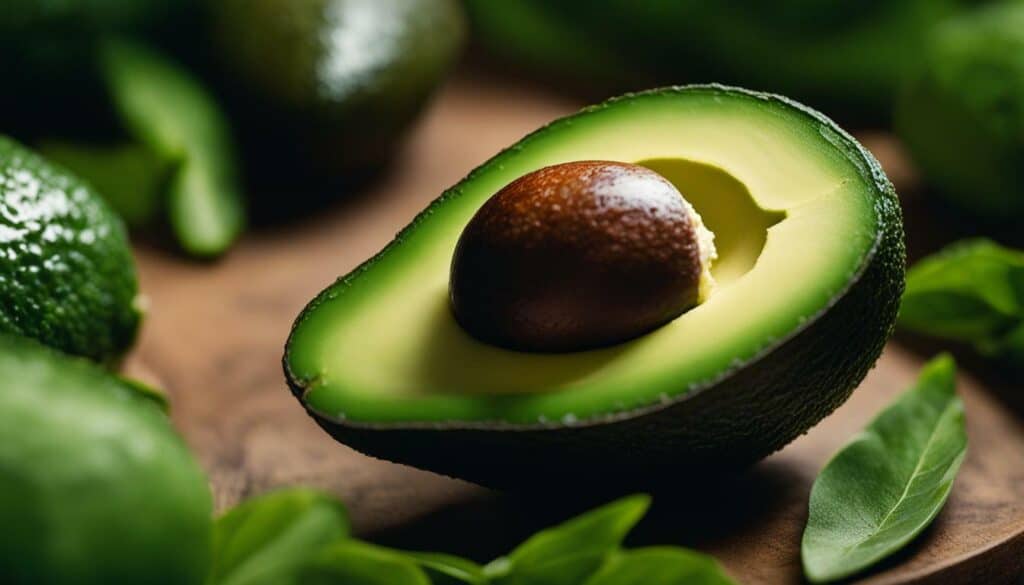
When incorporating mini avocados into your diet, it’s important to be mindful of portion sizes due to their calorie content. However, the nutrient density and health benefits they provide make them a valuable addition to a well-rounded eating plan.
It’s always a good idea to consult with a healthcare provider or registered dietitian to determine the best way to incorporate mini avocados into your specific dietary needs and goals.
In conclusion, mini avocados are not only a tasty and versatile ingredient but also offer a range of health benefits. From supporting heart health and managing cholesterol levels to providing essential vitamins and minerals, these small fruits can contribute to your overall well-being.
Understanding Mini Avocado Serving Size
To make informed dietary choices, it’s important to understand the recommended serving size for mini avocados. Let’s find out how much you should be eating.
Mini avocados, also known as cocktail avocados or baby avocados, are smaller in size compared to regular avocados. Their smaller size makes them a convenient option for single servings or for adding to salads, sandwiches, or appetizers. But how much should you consume to get the most out of their nutritional benefits?
The serving size for mini avocados is typically considered to be a single mini avocado. Each mini avocado contains approximately 117 calories, 10g of fat, 6g of carbohydrates, and 1g of protein. They are also a good source of vitamins and minerals, including potassium, vitamin C, and vitamin K. Incorporating mini avocados into your meals can provide a boost of nutrients in a compact package.
| Nutrient | Amount per mini avocado (approximately) |
|---|---|
| Calories | 117 |
| Fat | 10g |
| Carbohydrates | 6g |
| Protein | 1g |
| Potassium | 240mg |
| Vitamin C | 8mg |
| Vitamin K | 14.6mcg |
It’s important to note that individual nutritional needs may vary based on factors such as age, sex, activity level, and overall health. Consulting with a healthcare professional or registered dietitian can help determine the ideal serving size for your specific dietary requirements.
By understanding the proper serving size for mini avocados, you can enjoy their delicious taste while reaping their nutritional benefits. So go ahead and incorporate these mini wonders into your meals for a delightful and healthy addition to your diet!
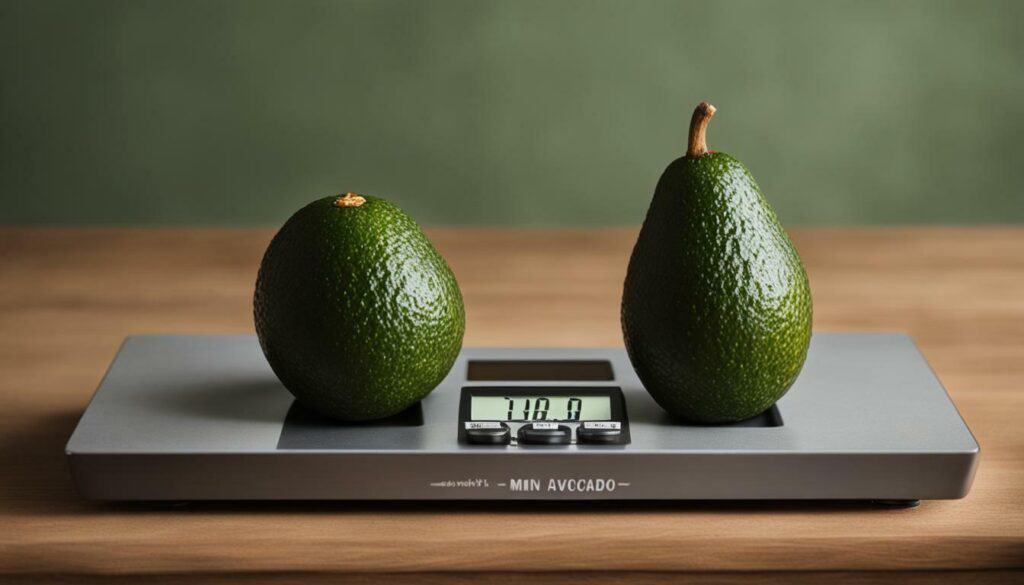
While mini avocados offer various health benefits, it’s essential to be mindful of their calorie content. Let’s explore why calories matter.
Avocado is considered a superfood and is known for its health benefits, including managing cholesterol and blood sugar levels. However, it is important to note that avocados are high in calories, with most of the calories coming from fat.
One-half of an avocado (100g) contains 160 calories, 14.7g of fat, 8.5g of carbohydrates, and 2g of protein. Avocados are also a good source of magnesium, potassium, vitamin C, vitamin E, and vitamin K. They are low in sugar and have a low glycemic index.
The fats found in avocados are primarily monounsaturated fats, which are healthier than saturated fats. Avocados also provide various vitamins and minerals, including folate, riboflavin, niacin, and pantothenic acid.
| Mini Avocado Nutrition Facts | Amount per Serving (100g) |
|---|---|
| Calories | 117 |
| Total Fat | 10g |
| Carbohydrates | 6g |
| Protein | 1g |
The calorie content of an avocado can differ based on its size, with an average avocado ranging from 200 to 300 calories. Including avocados in your diet can have potential benefits for diabetes management, cholesterol levels, and weight loss.
Avocado allergies are rare but can occur in some individuals. It is important to check with a healthcare provider if you are taking medication like warfarin, as avocados may affect its effectiveness.
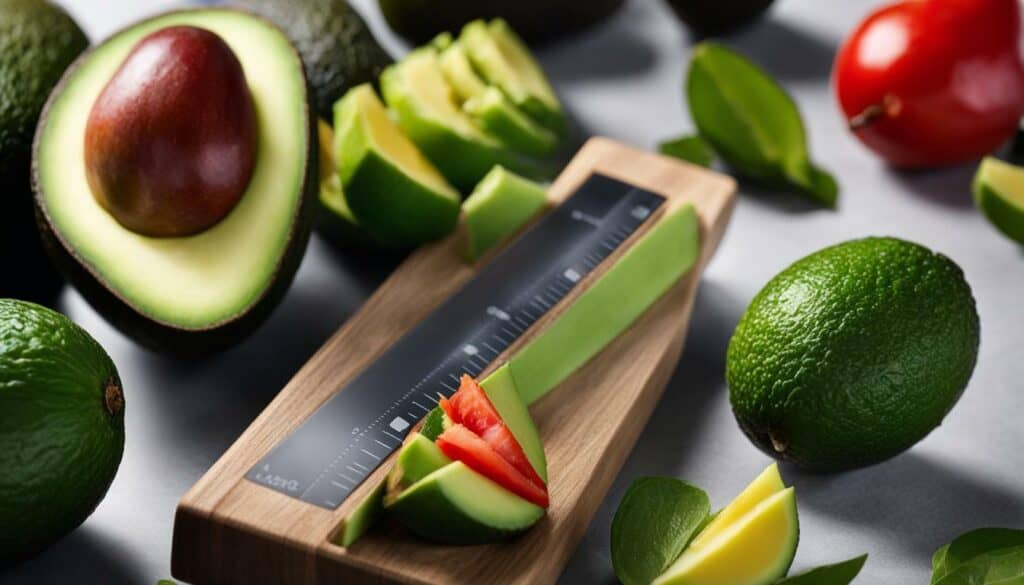
There are different varieties of avocados available, with Hass avocados being the most common in the US. When selecting an avocado, choose one that is dark in color and slightly yields when gently squeezed.
Ripe avocados can be stored in the refrigerator for 2 to 3 days. Avocados can be used in various dishes and can be a healthier alternative to higher-calorie ingredients.
Summary:
- Mini avocados offer health benefits, but it’s important to be mindful of their calorie content.
- One-half of an avocado contains 160 calories, primarily coming from healthy monounsaturated fats.
- Avocados are rich in vitamins, minerals, and low in sugar, making them a nutritious choice.
- Consuming avocados may have potential benefits for managing diabetes, cholesterol levels, and weight loss.
- Avocado allergies are rare, but it’s important to seek medical advice if necessary.
- Select ripe avocados that are dark in color and store them properly in the refrigerator.
By being mindful of the calorie content while enjoying the health benefits of mini avocados, you can incorporate them into a balanced and nutritious diet.
Mini Avocado vs. Regular Avocado: How Do They Compare?
Wondering how mini avocados stack up against their larger counterparts in terms of calories and nutritional value? Let’s make a side-by-side comparison:
| Mini Avocado (100g) | Regular Avocado (200g) | |
|---|---|---|
| Calories | 117 | 234 |
| Fat (g) | 10 | 20 |
| Carbohydrates (g) | 6 | 12 |
| Protein (g) | 1 | 2 |
As you can see, mini avocados have about half the calories and fat content compared to regular avocados. This makes them a great option for those looking to enjoy the deliciousness of avocados while keeping a closer watch on their calorie intake. Mini avocados are also lower in carbohydrates and protein, which may be beneficial for individuals following specific dietary plans.
Despite the differences in size, both mini and regular avocados offer similar nutritional benefits. They are a good source of potassium, vitamin C, and vitamin K. Avocados, regardless of their size, contain healthy monounsaturated fats that can contribute to heart health. These fats, along with their fiber content, can help keep you feeling satisfied and support healthy digestion.
So, whether you choose a mini avocado or a regular-sized one, you can enjoy the nutritional benefits and delicious taste that avocados have to offer. Just remember to consider the portion size and include them as part of a balanced diet.
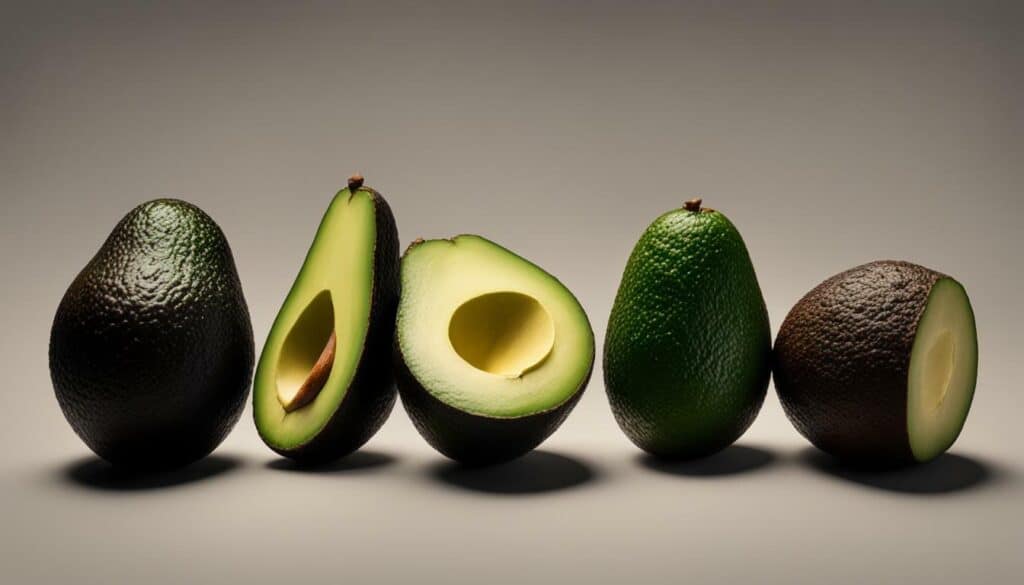
Looking for ideas on how to incorporate avocados into your meals? Here are a few suggestions:
- Add sliced mini avocados to your salads for an extra creamy texture.
- Spread mashed mini avocado on whole-grain toast and top with a sprinkle of sea salt and red pepper flakes for a quick and satisfying snack.
- Incorporate mini avocados into your smoothies for a creamy and nutritious boost.
- Create a tasty guacamole dip using mini avocados, diced tomatoes, onions, cilantro, lime juice, and a dash of salt.
Remember, avocados can be a versatile and healthy addition to your diet, but it’s important to be mindful of portion sizes to avoid consuming excess calories.
Now that you’re aware of how mini avocados compare to regular avocados in terms of calories and nutritional value, you can make an informed choice based on your dietary needs and preferences.
Mini Avocado and Weight Management
If you’re watching your weight, you might be curious about the role mini avocados can play in your diet. Let’s explore their potential impact on weight management.
Mini avocados are a nutritious and delicious addition to any weight loss plan. Despite their smaller size, they still pack a punch when it comes to nutrients. Mini avocados contain 117 calories, 10g of fat, 6g of carbohydrates, and 1g of protein. They are also a good source of vitamins and minerals, including potassium, vitamin C, and vitamin K.
The high fiber and healthy fat content in mini avocados can help keep you feeling full and satisfied, which is essential for weight management. Including mini avocados in your meals can help control hunger and prevent overeating. They can also add a creamy and rich texture to your dishes, making them a satisfying addition to salads, sandwiches, and even smoothies.
Remember that portion control is key when it comes to incorporating mini avocados into your weight loss plan. While they are nutrient-dense, they are still high in calories. Be mindful of your overall calorie intake and consider the mini avocado serving size, which is typically around one-third of a medium-sized avocado. This will help you strike a balance between enjoying the nutritional benefits of mini avocados and managing your calorie intake effectively.
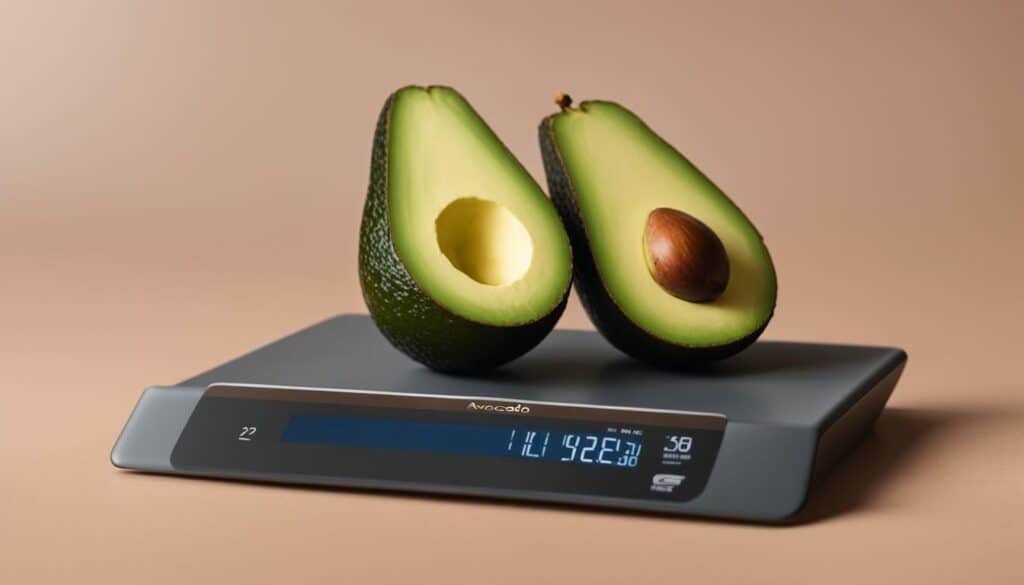
In summary, mini avocados can be a valuable asset in your weight management journey. Their nutritional profile, including their fiber and healthy fat content, can support feelings of fullness and satisfaction while providing essential vitamins and minerals. Remember to practice portion control and include mini avocados as part of a balanced, calorie-conscious diet. Enjoy the versatility and taste of mini avocados while working towards your weight loss goals.
Mini Avocado and Diabetes Management
If you have diabetes or are at risk, you might be interested in how mini avocados can positively impact your blood sugar levels. Let’s uncover their potential benefits.
Avocados are a nutritious fruit known for their high content of healthy fats and low glycemic index. These qualities make them a suitable choice for individuals with diabetes. The monounsaturated fats found in avocados can help improve insulin sensitivity and regulate blood sugar levels. Additionally, avocados are low in carbohydrates, which can aid in maintaining stable blood sugar levels.
Furthermore, mini avocados are a good source of fiber. Fiber plays an essential role in diabetes management by slowing down the digestion and absorption of carbohydrates, preventing spikes in blood sugar levels. Including mini avocados in your meals or snacks can help you feel fuller for longer periods, reducing the chances of overeating or consuming high-sugar foods.
| Nutrient | Mini Avocado (100g) |
|---|---|
| Calories | 117 |
| Fat | 10g |
| Carbohydrates | 6g |
| Protein | 1g |
| Potassium | 234mg |
| Vitamin C | 9mg |
| Vitamin K | 21mcg |
As with any dietary changes, it is essential to incorporate mini avocados into a well-balanced meal plan and consult with a healthcare professional or registered dietitian. They can provide personalized guidance on portion sizes and help you create a diabetes-friendly diet that suits your specific needs.
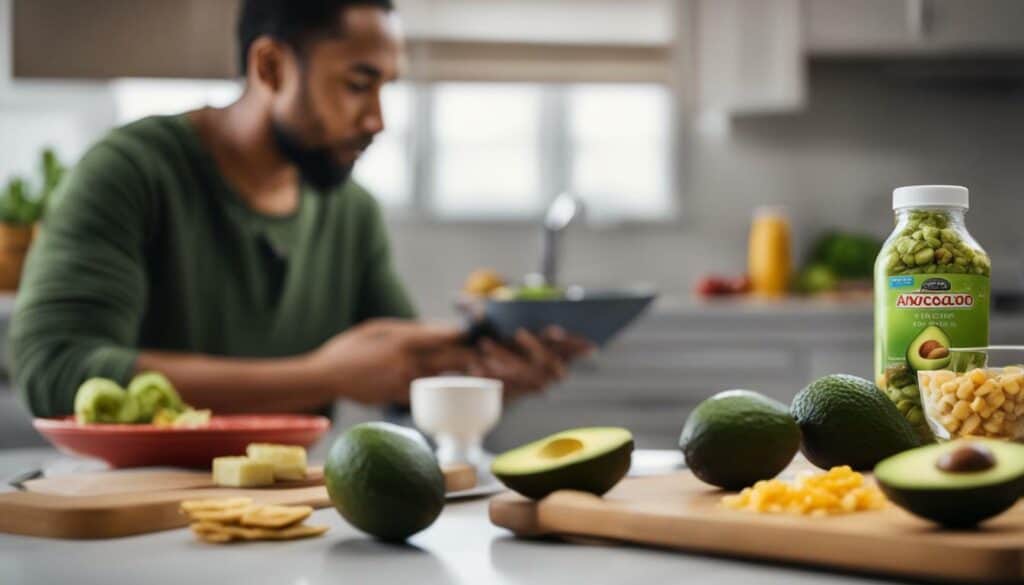
In conclusion, mini avocados offer various health benefits and can be a valuable addition to a diabetes management plan. Their high content of healthy fats, low carbohydrate count, and fiber make them an excellent choice for individuals with diabetes or those looking to maintain stable blood sugar levels. Remember to enjoy mini avocados as part of a balanced diet and consult with a healthcare professional for personalized advice.
Mini Avocado and Cholesterol Levels
Maintaining healthy cholesterol levels is crucial for heart health, and mini avocados might just be a beneficial addition to your diet. Let’s explore their impact.
Avocados are known for their heart-healthy properties, and the same holds true for mini avocados. These small, nutrient-packed fruits contain monounsaturated fats, which have been shown to help lower LDL cholesterol levels, also known as “bad” cholesterol. By incorporating mini avocados into your meals, you can potentially improve your cholesterol profile and reduce the risk of heart disease.
Not only are mini avocados cholesterol-friendly, but they also offer a range of vitamins and minerals that contribute to overall heart health. They are an excellent source of potassium, a mineral that helps regulate blood pressure, reducing the risk of heart disease. Additionally, mini avocados contain vitamin E, which acts as an antioxidant and helps protect the body’s cells from damage.
| Nutrient | Amount per 100g |
|---|---|
| Calories | 117 |
| Fat | 10g |
| Carbohydrates | 6g |
| Protein | 1g |
| Potassium | 425mg |
| Vitamin C | 5mg |
| Vitamin K | 17mcg |
To incorporate mini avocados into your diet, try adding them to salads, sandwiches, or smoothies. Their creamy texture and mild flavor complement a wide range of dishes, making them a versatile ingredient. Remember to consume mini avocados in moderation, as they are still high in calories. One mini avocado contains approximately 117 calories, making portion control important for managing your overall calorie intake.
In conclusion, mini avocados can contribute to maintaining healthy cholesterol levels and promote heart health. Their nutrient profile, including monounsaturated fats, potassium, vitamin E, and vitamin C, make them a valuable addition to a balanced diet. By enjoying mini avocados as part of your meals, you can indulge in their creamy goodness while taking care of your heart.
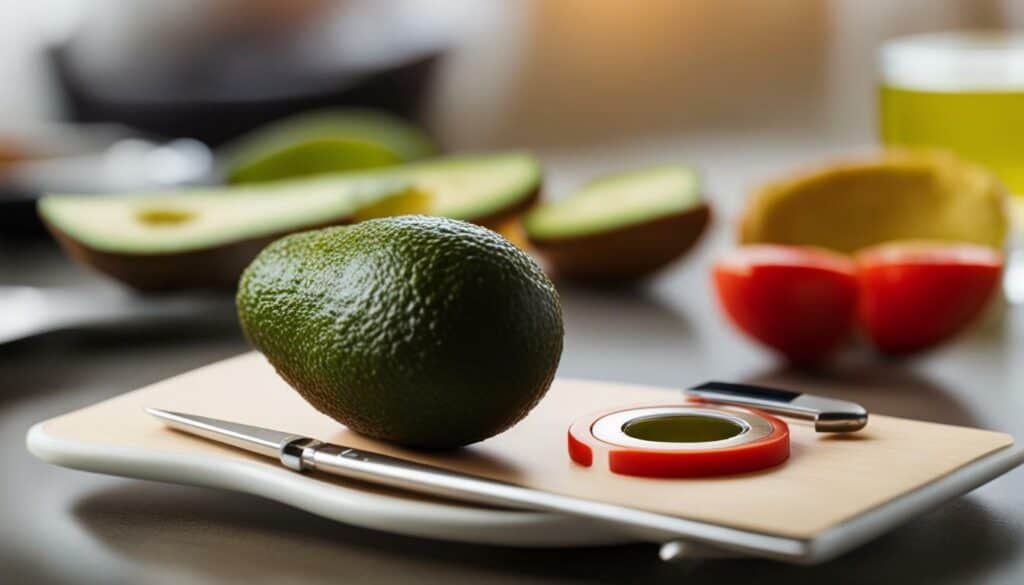
While avocados are generally safe to consume, it’s important to be aware of potential allergies and risks, even with mini avocados. Let’s dive into the details.
Avocado allergies are rare but can occur in some individuals. Symptoms of avocado allergy may include itching, hives, swelling, and difficulty breathing. Severe allergies can lead to anaphylaxis, a life-threatening allergic reaction. If you suspect an avocado allergy, it’s crucial to seek medical attention and avoid consuming avocados or any products containing avocados.
Additionally, avocados contain a compound called persin, which can be toxic to certain animals, including dogs, cats, and birds. While persin is generally not harmful to humans, it’s advised to keep avocados out of reach of pets to prevent accidental ingestion.
It’s also worth noting that avocados may interact with certain medications, particularly those related to blood clotting. If you are taking medications like warfarin, it’s essential to consult with your healthcare provider before adding avocados to your diet. The high vitamin K content in avocados may potentially affect the effectiveness of such medications.
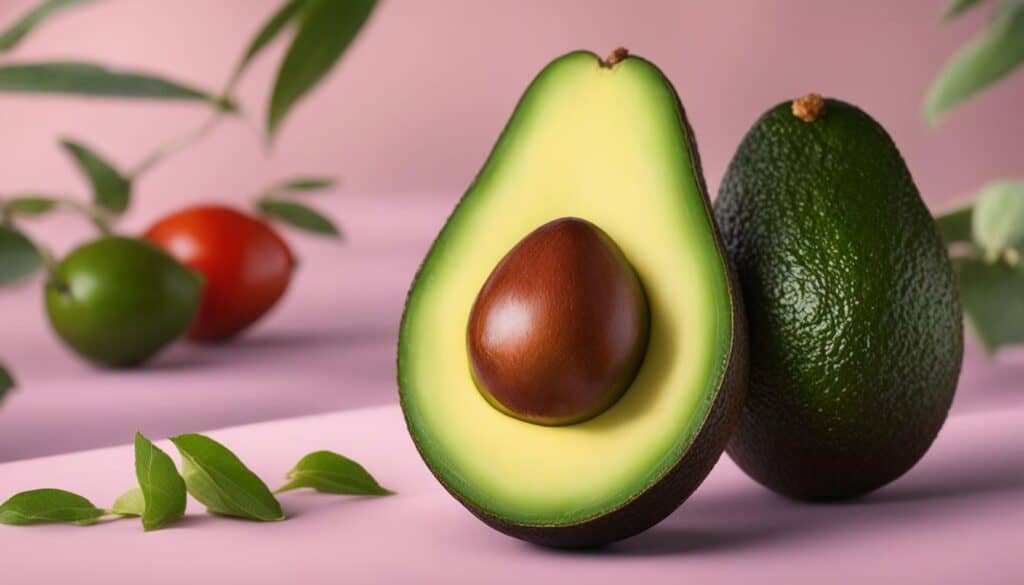
| Nutritional Information (per 100g) | Mini Avocado | Regular Avocado |
|---|---|---|
| Calories | 117 | 160 |
| Total Fat (g) | 10 | 14.7 |
| Carbohydrates (g) | 6 | 8.5 |
| Protein (g) | 1 | 2 |
Avocado allergies can be rare, but it’s always important to be cautious and aware of your body’s responses. If you experience any unusual reactions after consuming avocados, seek medical advice immediately.
Despite these potential risks, avocados can be a nutritious addition to a balanced diet. They are packed with essential vitamins, minerals, and healthy fats. If you have any concerns about consuming avocados, consult with your healthcare provider.
Tips for Selecting and Storing Mini Avocados
To enjoy fresh and flavorful mini avocados, knowing how to select and store them is key. Let’s explore some useful tips:
- Choose the right color: When selecting mini avocados, look for ones that have a dark, almost black color. This indicates that they are ripe and ready to be enjoyed.
- Gently squeeze: Give the mini avocados a gentle squeeze with your fingertips. They should have a slight give, but not be too soft. Avoid avocados that feel overly firm or mushy.
- Check the stem: Take a peek under the stem or cap of the mini avocado. If it easily comes off and is green underneath, it’s a good sign that the avocado is ripe and creamy inside. If it’s brown, the avocado may be overripe or spoiled.
- Avoid bruises or dents: Inspect the skin of the mini avocados for any bruises, dents, or blemishes. While minor imperfections are normal, significant damage could indicate that the avocado is past its prime.
Once you’ve selected the perfect mini avocados, it’s important to store them properly to maintain their freshness:
- Store at room temperature: If your mini avocados are still unripe, leave them at room temperature to allow them to ripen naturally. Placing them in a brown paper bag can speed up the ripening process.
- Refrigerate when ripe: Once your mini avocados have ripened, store them in the refrigerator to slow down the ripening process. This will help extend their shelf life and freshness.
- Protect from oxidation: To prevent your mini avocados from turning brown, squeeze some lemon or lime juice over the exposed flesh and cover the cut side with plastic wrap. This will help preserve their vibrant green color.
By following these tips, you can ensure that your mini avocados stay fresh and delicious for longer, allowing you to enjoy their creamy goodness whenever you desire.
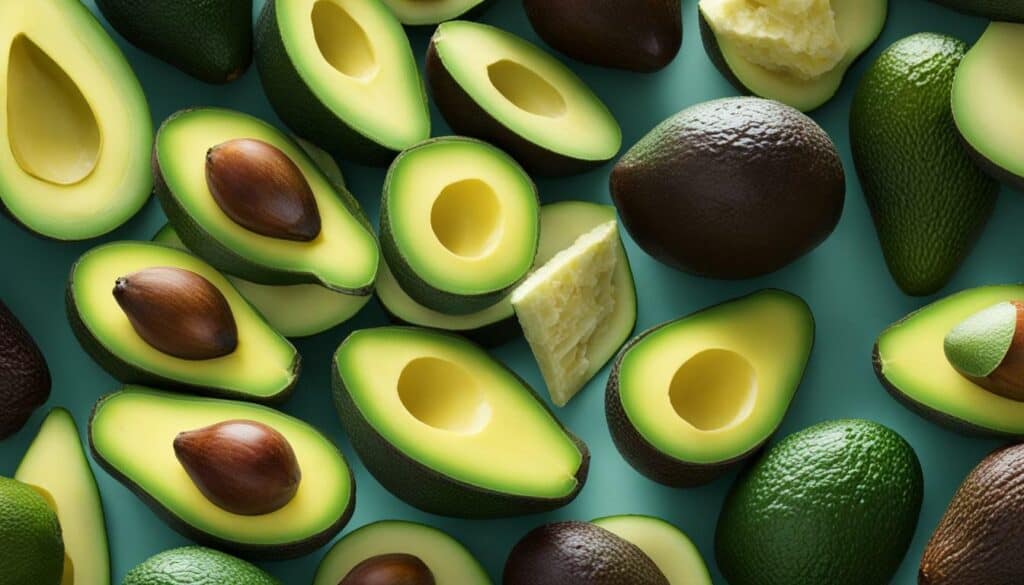
Remember, the key to enjoying mini avocados is selecting ripe ones and storing them properly. With their creamy texture and nutrient-packed goodness, mini avocados can be a versatile and healthy addition to your meals and snacks.
Conclusion
Mini avocados offer a nutritious and delicious snack option, but it’s important to be mindful of their calorie content. Avocados are considered a superfood, known for their health benefits such as managing cholesterol and blood sugar levels. However, it’s essential to note that avocados are high in calories, with most of the calories coming from fat.
One-half of a regular-sized avocado (100g) contains 160 calories, 14.7g of fat, 8.5g of carbohydrates, and 2g of protein. These creamy fruits are also a good source of magnesium, potassium, vitamin C, vitamin E, and vitamin K. They are low in sugar and have a low glycemic index. The fats found in avocados are primarily monounsaturated fats, which are healthier than saturated fats.
Avocados provide various vitamins and minerals, including folate, riboflavin, niacin, and pantothenic acid. Depending on the size, an average avocado can range from 200 to 300 calories. Including avocados in your diet can have potential benefits for managing diabetes, maintaining healthy cholesterol levels, and supporting weight loss goals.
While avocado allergies are rare, they can occur in some individuals. If you are taking medications like warfarin, it is important to consult with a healthcare provider as avocados may affect its effectiveness. When selecting an avocado, choose one that is dark in color and slightly yields when gently squeezed. Ripe avocados can be stored in the refrigerator for 2 to 3 days.
Avocados can be used in various dishes and can be a healthier alternative to higher-calorie ingredients. Mini avocados, with 117 calories, 10g of fat, 6g of carbohydrates, and 1g of protein, are also a good source of vitamins and minerals, including potassium, vitamin C, and vitamin K. Keep all this information in mind to make informed choices and enjoy mini avocados as part of a balanced diet.
FAQ
Q: What is the calorie count in mini avocados?
A: Mini avocados contain approximately 117 calories.
Q: How much fat is in a mini avocado?
A: A mini avocado contains approximately 10g of fat.
Q: What is the carbohydrate content of a mini avocado?
A: A mini avocado contains approximately 6g of carbohydrates.
Q: How much protein is in a mini avocado?
A: A mini avocado contains approximately 1g of protein.
Q: What vitamins and minerals are found in mini avocados?
A: Mini avocados are a good source of potassium, vitamin C, and vitamin K.
Q: Are mini avocados low in sugar?
A: Yes, mini avocados have a low sugar content.
Q: What type of fats are present in mini avocados?
A: Mini avocados primarily contain monounsaturated fats, which are considered healthier than saturated fats.
Q: Can mini avocados be beneficial for diabetes management?
A: Including mini avocados in your diet may have potential benefits for managing diabetes.
Q: Can mini avocados help with cholesterol levels?
A: Yes, consuming mini avocados can contribute to maintaining healthy cholesterol levels.
Q: Are there any potential risks or allergies associated with mini avocados?
A: Avocado allergies are rare but can occur in some individuals. It’s recommended to check with a healthcare provider if you have any concerns.
Q: How should I select and store mini avocados?
A: When selecting a mini avocado, choose one that is dark in color and slightly yields when gently squeezed. Ripe avocados can be stored in the refrigerator for 2 to 3 days.
Q: Can mini avocados be used as a healthier alternative in recipes?
A: Yes, mini avocados can be a healthier alternative to higher-calorie ingredients and can be used in various dishes.
How Many Calories Does Sherbet Have Compared to Mini Avocado?
When comparing sherbet and mini avocados, one may come across surprising facts about sherbet nutrition. Sherbet generally contains fewer calories compared to mini avocados. While sherbet can vary in calorie content depending on the flavor, it typically contains around 120-150 calories per serving. On the other hand, a small mini avocado tends to have approximately 60-80 calories.

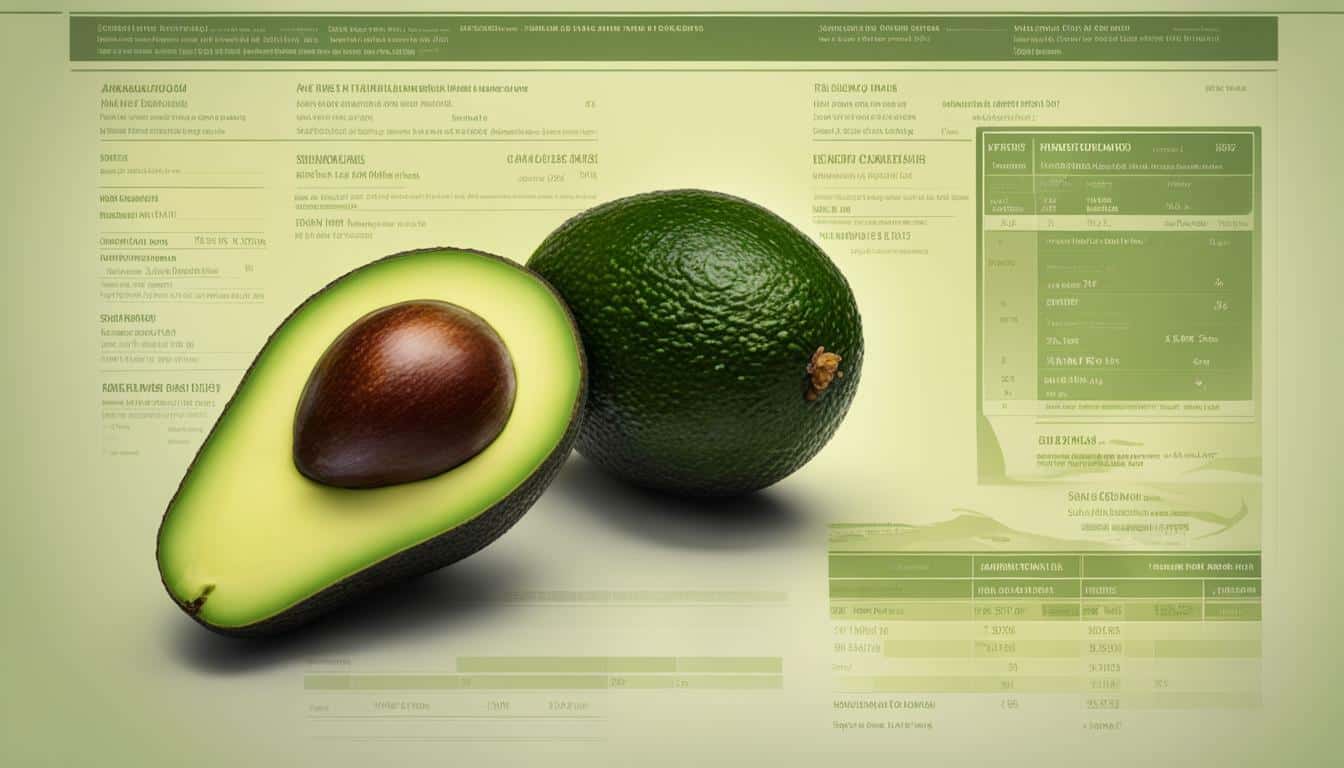
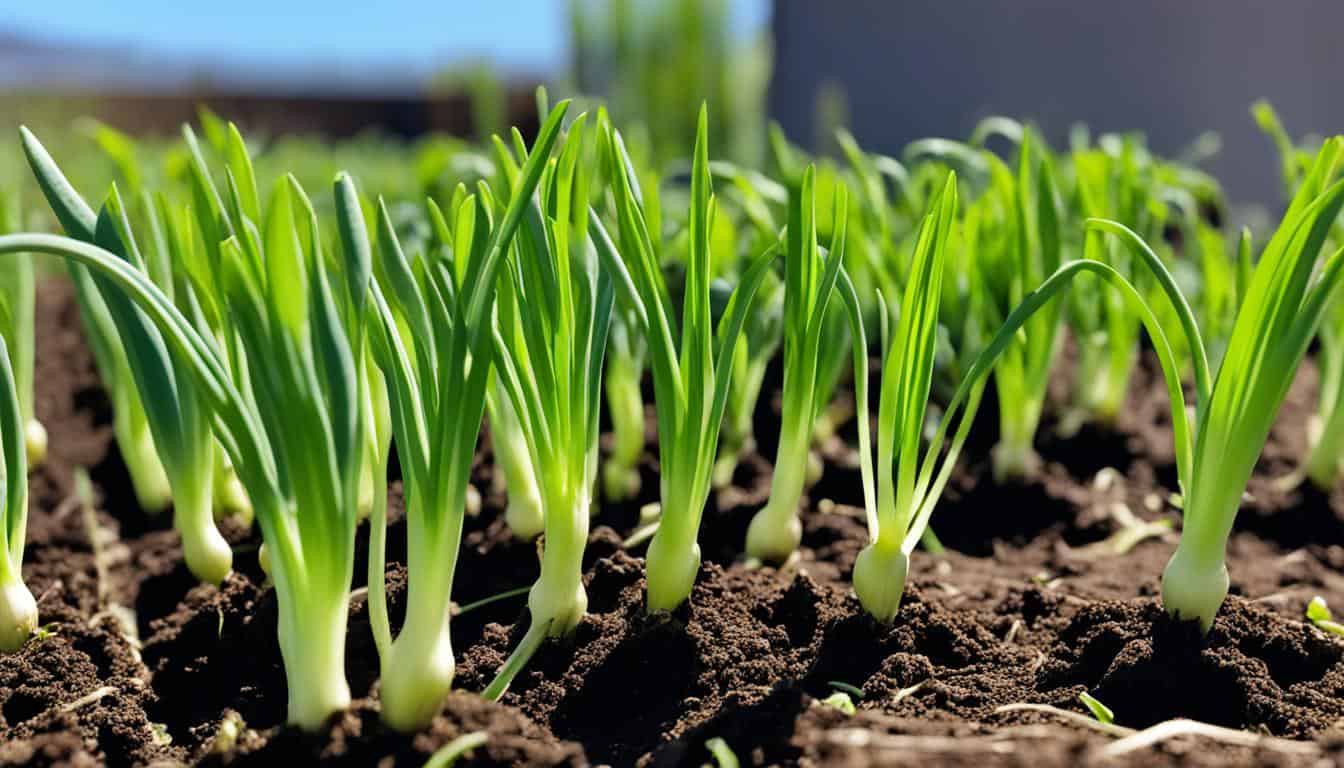
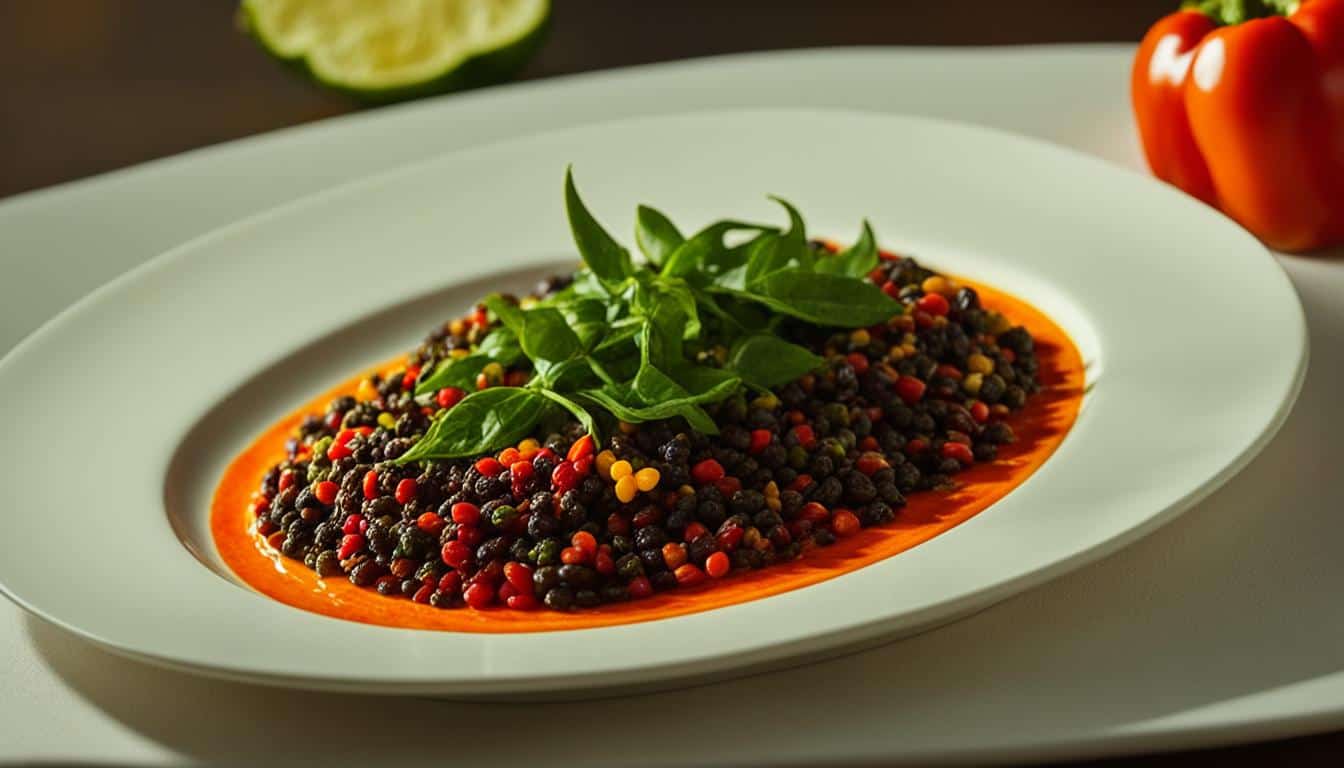
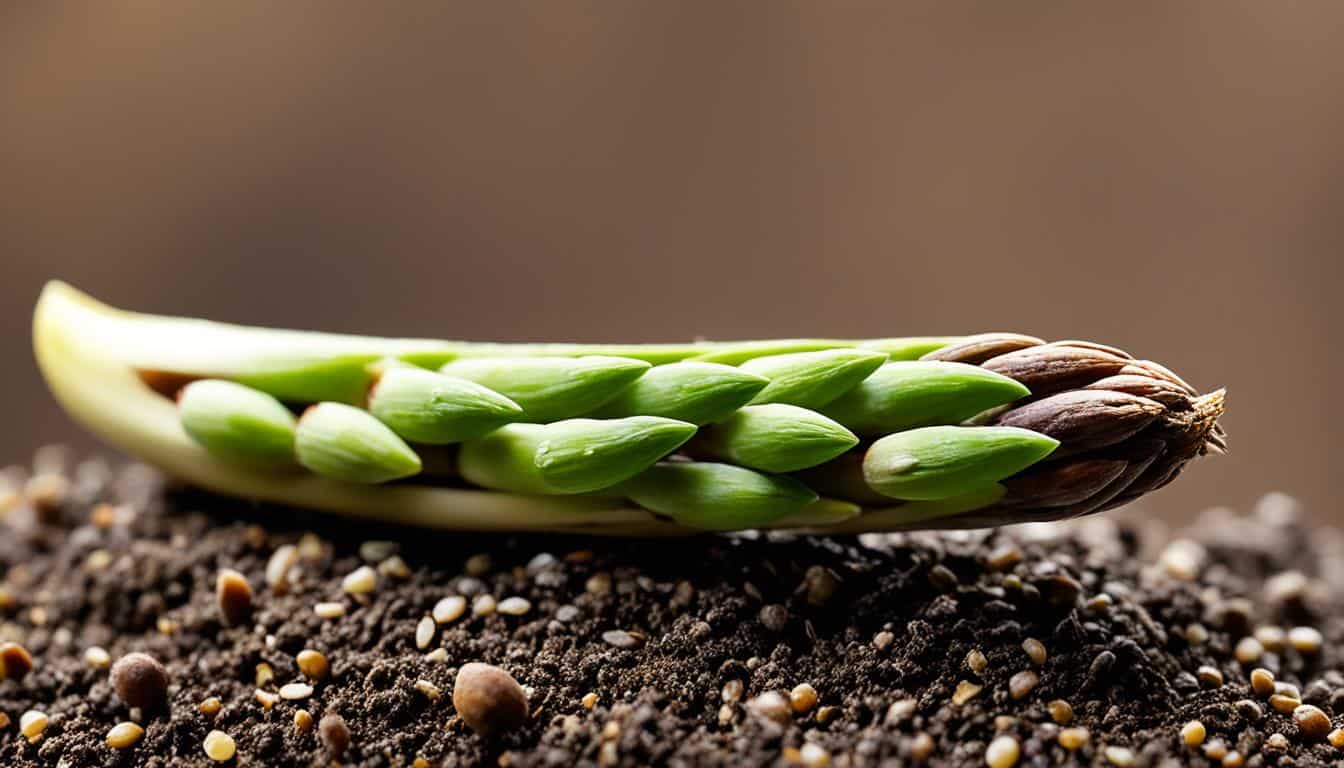
Leave a Reply